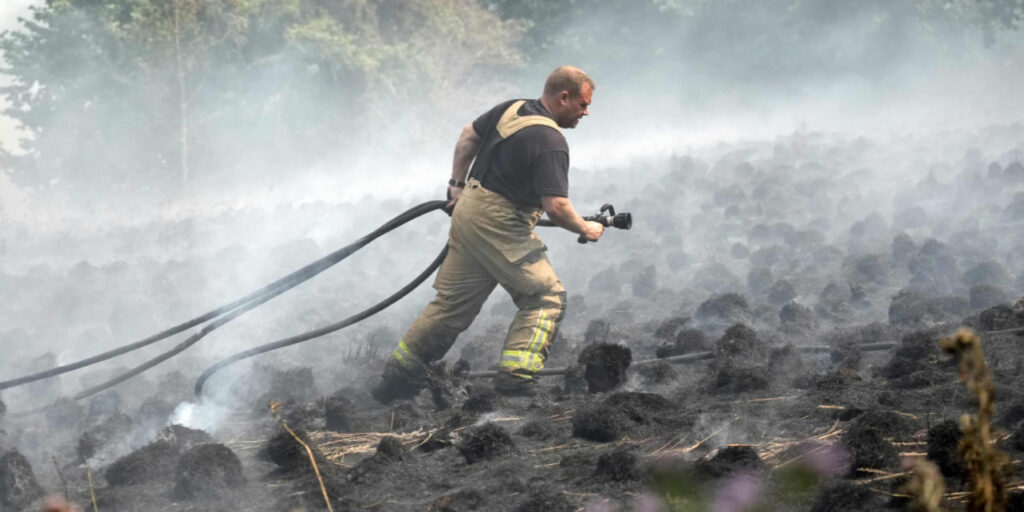Park rangers from the South Downs to the Scottish Highlands have raised serious concerns following one of the driest early spring seasons on record.
Despite some rainfall in recent days, large areas remain parched after weeks of unusually warm and breezy weather.
Authorities across several national parks, including the Peak District and North York Moors, are warning visitors not to light barbecues, drop cigarettes, or discard glass bottles.
These small actions, they say, could spark wildfires with devastating consequences for local wildlife, habitats, and public safety.
According to the National Fire Chiefs Council (NFCC), England and Wales have already recorded more than double the number of wildfires this year compared to the same period in 2022. That year went on to set a record for moorland blazes.
The NFCC stressed that most wildfires are caused by human activity — often accidental but sometimes deliberate. They’re urging the public to avoid disposable barbecues and take extra care when enjoying outdoor spaces this Easter.
Ben Jackson, head ranger at North York Moors National Park, said the current conditions are ideal for a major wildfire that could severely damage wildlife and habitats.
Environmental charities have also raised alarm over the impact of recent wildfires, which they say have destroyed entire ecosystems and endangered vulnerable species. Habitats for birds, small mammals, insects and other wildlife — including falcons, butterflies, and beetles — have been heavily affected. Some peat bogs may take centuries to fully recover.
In the Peak District, rangers warned that just one careless moment could result in years of environmental restoration work.
The Cairngorms National Park Authority plans to introduce a seasonal fire ban from 1 April to 30 September. If approved by the Scottish government, lighting or maintaining fires will become a criminal offence during this high-risk period.
Steve Tatlock, from the Lake District National Park Authority, said: “The recent spell of dry weather has left the landscape highly vulnerable. While Easter is a peak time for visitors, even a smouldering barbecue or discarded cigarette could start a fire that devastates the region’s natural beauty.”
Park authorities are urging everyone visiting national parks this Easter to enjoy the countryside responsibly and take simple precautions to protect wildlife and landscapes.


